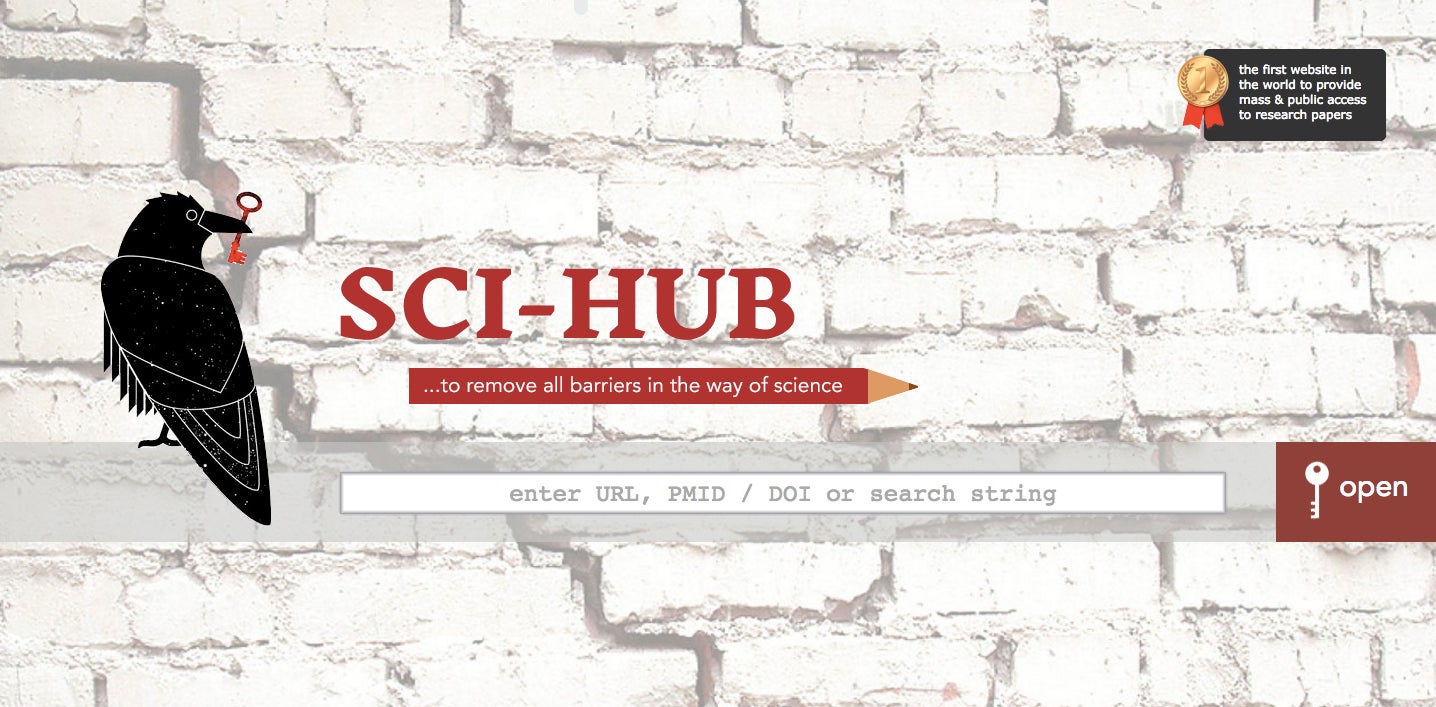The website that offered 47 million pirated academic papers is back
Digital piracy is not all about movies and music—pretty much anything that people feel is unfairly priced will find its way online in large numbers. Even academic papers.


Digital piracy is not all about movies and music—pretty much anything that people feel is unfairly priced will find its way online in large numbers. Even academic papers.
In October 2015, a New York district court ruled in favor of the academic publisher Elsevier, which had accused Sci-Hub, a website that offers pirated versions of academic papers, of copyright violation. That decision allowed authorities to take down the site’s domain name, sci-hub.org.
Suspending a domain name does not delete a website forever, though, it just prevents visitors from knowing where exactly to find it. It’s trivial enough to relaunch the same site under another domain, as Sci-Hub did, setting up as sci-hub.io. Now knowledge of the new domain has spread far and wide, with mentions of it showing up across social networks like Reddit and Hacker News, and with coverage in publications like Big Think and The Atlantic (our sister publication).
Sci-Hub’s tagline is “to remove all barriers in the way of science.” It was created by Alexandra Elbakyan, a neuroscience researcher from Kazakhstan, and is effectively an automated version of the #icanhazpdf hashtag. Most academic papers are behind some kind of paywall, coming out to around $30 per paper, according to one estimate. In the manual way of getting around this, someone tweets a link to a paper along with their email address and the hashtag #icanhazpdf. Someone else, who has access to the paper, perhaps through a subscription or their university, then downloads and emails the paper to them.
Sci-Hub, on the other hand, takes a link to a paper and automatically tries credentials for various universities until it manages to gain access to the paper, retrieving the PDF. This method gives it access to more information than any individual researcher or institution, and Sci-Hub estimates its total access at 47 million papers.
The new domain will be hard for a US-based lawsuit, like Elsevier’s from last year, to shut down. The US only has jurisdiction over registrars based in the US, such as .com, .net, and .org. The trendy .io domain is actually registered to the British Indian Ocean Territory, meaning the UK would have to act, as happened with PopcornTime.io, the Netflix-for-pirates.
But as The Atlantic points out, Sci-Hub will be able to survive any number of domain seizures thanks to its existence on the “dark web.” Accessing the site in this way, through the distributed Tor network, does not involve any centralized registry, meaning there is no single entity that authorities can shut down.
The main beneficiaries of Sci-Hub are outside of the US, like the site’s creator herself. The traffic figures from Alexa.com, though only a crude estimate, list users from China, Iran, India, Brazil, and Russia as the top visitors to sci-hub.io, with the US outside the top five. While even Harvard has said it can’t afford the steep prices of some publishers, most American universities offer relatively robust access, and researchers may be able to afford the $30 or so it usually costs to purchase a paper.
“For me, even the purchase of one such article would be a financial setback,” Alexandra told Russia Today via email. “So I had to go about acquiring all the articles by pirate means.”